Keynote Session
-
Vietnam
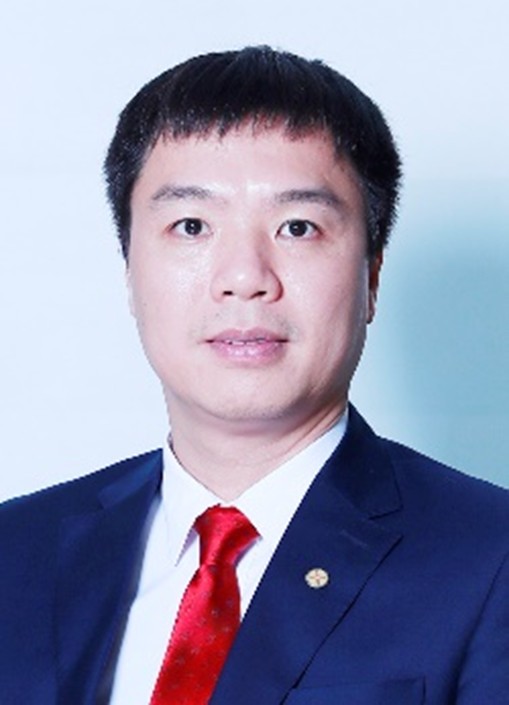 Dr. DANG Bang Viet
Vietnam Electricity (EVN)
Dr. DANG Bang Viet
Vietnam Electricity (EVN)
-
Vietnam
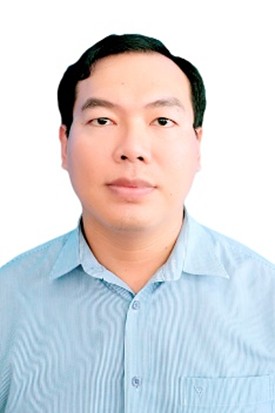 Dr. Khai Phuc Nguyen
Ho Chi Minh City University of Technology
Dr. Khai Phuc Nguyen
Ho Chi Minh City University of Technology
-
Korea
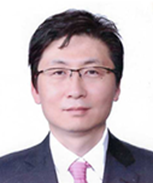 Dr. SangYule Choi
Induk University, Seoul, Korea
Dr. SangYule Choi
Induk University, Seoul, Korea
-
Korea
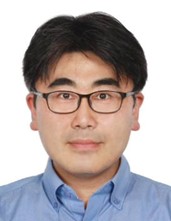 Dr. Lee, Junwon
Samsung SDS
Dr. Lee, Junwon
Samsung SDS
-
Kazakhstan
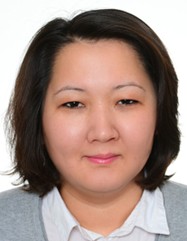 Dr. Zhanna Suimenbayeva
Mukhametzhan Tynyshpayev ALT University
Dr. Zhanna Suimenbayeva
Mukhametzhan Tynyshpayev ALT University
-
Kazakhstan
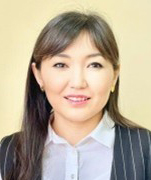 Dr. Assel Mukasheva
Kazakh-British Technical University
Dr. Assel Mukasheva
Kazakh-British Technical University
-
Turkey
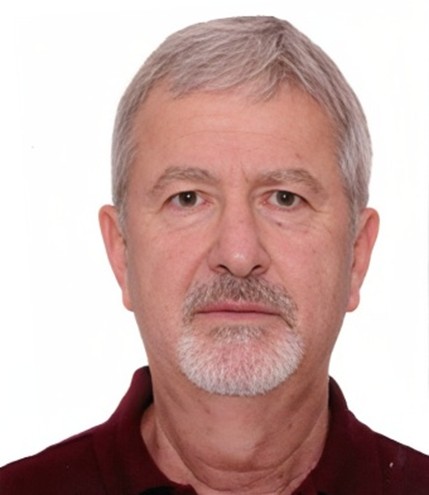 Dr.Aydogan Ozdemir, Professor
Kadir Has Universityş Turkey
Dr.Aydogan Ozdemir, Professor
Kadir Has Universityş Turkey
-
Korea
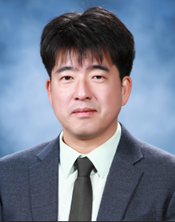 Dr./Professor Joondong KIM
Incheon National University
Dr./Professor Joondong KIM
Incheon National University
-
Thailand
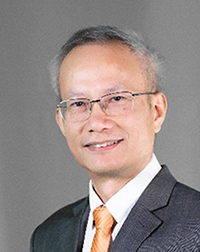 Dr. Chatchawan Chaichana
Faculty of Engineering, Chiang Mai University, Thailand
Dr. Chatchawan Chaichana
Faculty of Engineering, Chiang Mai University, Thailand
-
Korea
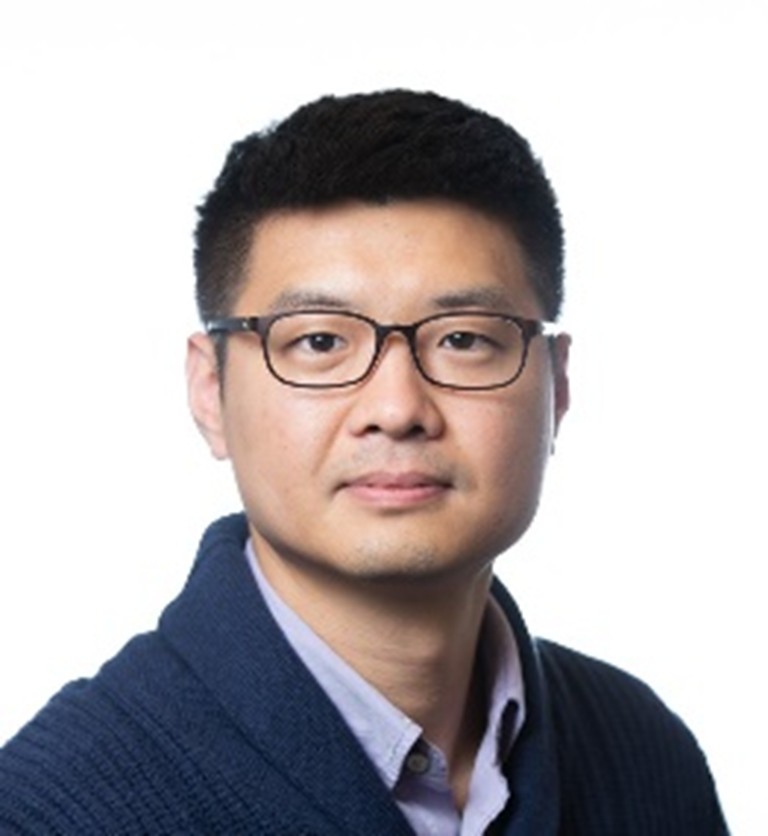 Dr. & Prof. Dongsu Kim
Hanbat National University
Dr. & Prof. Dongsu Kim
Hanbat National University
-
Korea
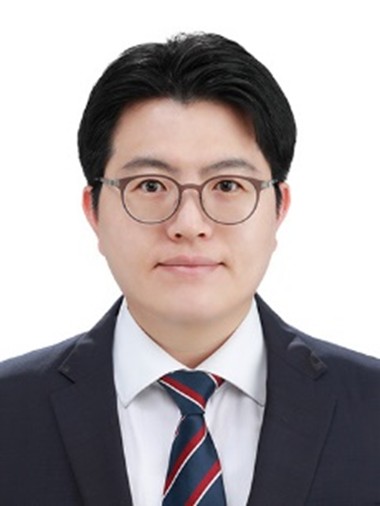 Dr. & Prof. Jeonghwan Gwak
Korea National University of Transportation
Dr. & Prof. Jeonghwan Gwak
Korea National University of Transportation
-
Korea
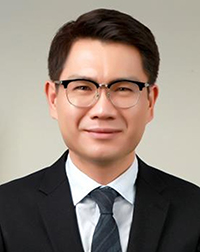 Dr. & Prof. Young Park
Hanbat National University
Dr. & Prof. Young Park
Hanbat National University
ICEF2025 Keynote Speaker

Dr. DANG Bang Viet
Vietnam Electricity (EVN)
Deputy Director of Science Technology & Digital Transformation Department
Abstract
The presentation begins with a comprehensive overview of Vietnam’s power system, encompassing the structure and current status of electricity generation, high-voltage transmission networks, and the distribution and retail sector. The next section will discuss key development directions for Vietnam’s power system based on the Power Development Plan 8. Following this, the presentation addresses some pressing research issues for Vietnam’s power system. In the final part, the presentation highlights Vietnam’s latest policies to promote innovation in the energy sector, including new regulations, R&D incentives, and increased collaboration among industry, academia, and policymakers. These efforts aim to foster technological advancement and support the sustainable growth of Vietnam’s power sector.
Biography
Dr. Dang Bang Viet graduated from Hanoi University of Science and Technology with an Engineer’s degree in Power Systems Engineering in 2002. He completed his Master’s program at Grenoble Institute of Technology (France) in 2003. In 2006, he obtained his Ph.D. degree in Power Electronics from Grenoble 1 University (France). From 2007 – 2008, Dr. Viet worked as a research associate at the University of Manchester (UK), where he participated in a high power DC-DC converter design project.
Currently, Dr. Viet is the Deputy Director of the Science, Technology & Digital Transformation Department at Vietnam Electricity (EVN). His work focuses on promoting R&D projects as well as establishing the innovation management system within EVN, aiming to enhance operational efficiency and foster digital transformation in the power sector.
ICEF2025 Keynote Speaker

Dr. Khai Phuc Nguyen
Ho Chi Minh City University of Technology
Application of Artificial Intelligence Models for Forecasting the Electricity Market
Abstract
This presentation summarizes our group's research on applying artificial intelligence models to forecast electricity loads and solar power generation systems. In Vietnam, electricity demand is growing rapidly, at approximately 10% per year. Our research team has proposed AI methods that utilize time series data for these forecasts. The results indicate that enhanced techniques derived from long short-term memory models yield promising outcomes. Furthermore, Vietnam leads among ASEAN countries in terms of installed solar power capacity. Based on the data collected from weather patterns, our research demonstrates that using artificial intelligence models produces highly accurate forecast results.
Biography
Khai Phuc Nguyen earned his Bachelor of Engineering (B.Eng.) and Master of Engineering (M.Eng.) degrees in electrical engineering from Ho Chi Minh City University of Technology, Vietnam, in 2010 and 2012, respectively. He obtained his PhD from Shibaura Institute of Technology in Japan in 2017. Since then, he has been a full-time lecturer at the Ho Chi Minh City University of Technology, where he specializes in renewable energy and electrical power systems. Additionally, he collaborates with GIZ Vietnam and other enterprises as a technical expert in solar energy in Vietnam. He has over 30 scientific articles on optimization and artificial intelligence in power systems.
ICEF2025 Keynote Speaker

SangYule Choi
Induk University, Seoul, Korea
The Development of Weather Based Intelligent Demand Controller
Abstract
Direct Load Control(DLC) program is an advanced agreement between a power utility and customers to control some customers’ appliances (e.g., air conditioners and water heaters). It is an incentive-based demand response system in which the utility provides the affected customer with financial incentives. Under the existing DLC program, the utility turn on/off customers’ appliances without considering the customer's inconvenience. that causes a lot of customers are reluctant to participate in the DLC program. In this paper, To solve this problem, the author present weather based intelligent demand controller to analyze correlation between weather condition and customers energy consumption and to predict customers energy consumption. To demonstrate the validity of the proposed demand controller, porto type demand controller are developed and applied to real customer load.
Biography
He received his B.S, M.S, and Ph.D degrees in electrical engineering from Sung Kyun Kwan University, Suwon, South Korea, in 1996, 1998 and 2002, respectively. Since 2004, he has been a Professor in the Department of Mechatronics Engineering, Induk University, Seoul, Korea. His research interests include demand control, load forecasting and power distribution automation
ICEF2025 Keynote Speaker

Dr. Lee, Junwon
Samsung SDS
Secure and Scalable IoT: An IoT Network Platform Based on Network Overlay and MAC
Abstract
In the VPN (with data encryption) applied to protect the distributed network over the public internet, the small computing resource of low-spec devices limits TCP/IP-based VPN use. Although lightweight IoT communication protocols such as LoWPAN are used, TCP/IP-based VPNs such as IPsec and OpenVPN require bandwidth, CPU/memory, and electric power.
To provide a safe and lightweight network, we propose a secure and scalable IoT platform (SSI) that can prevent security threats while minimizing the usage of computing resources. SSI, which has a lower load than TCP/IP-based VPN, is a layer 2 VPN and supplies data link frame encryption. L2TP and VXLAN are provided for a scalable layer 2 VPN, and the MACsec algorithm encrypts layer 2 frames. Furthermore, SSI shows 30% network speed improvement and 31.6% CPU usage reduction compared to the network applied OpenVPN.
Biography
He is currently serving as a Principal Engineer at Samsung SDS and holds a Ph.D. in Computer Science and Engineering. He began in 2002 as a Network Engineer, dedicating eight years to consulting and developing network infrastructures for notable companies including Tesco, Hynix, and Samsung. Since 2011, he has advanced his career at the Samsung Security Center as a Security Engineer, where his main duties encompass cloud security auditing, evaluating system architecture for security, and managing security incidents.
His doctoral research delved into AI-based traffic detection and IoT platform security, culminating in contributions to various journals and conferences. More recently, his research interests have shifted towards developing methods for verifying network data through graph embedding techniques. And He is actively working on projects that apply these studies to the security of the company.
ICEF2025 Keynote Speaker

Dr. Zhanna Suimenbayeva
Mukhametzhan Tynyshpayev ALT University
Rail Transport Energy in Kazakhstan: A Strategic Vector in the Era of Green Transformation
Abstract
Modern challenges—such as the growing volume of freight and passenger transportation, the need to reduce greenhouse gas emissions, and the global shift toward sustainable technologies—demand a rethinking of energy strategies in Kazakhstan's railway sector. This keynote will explore key development directions including electrification, the integration of renewable energy sources, improvements in rolling stock energy efficiency, and the potential use of alternative fuels. Special attention will be given to the role of rail transport energy in achieving the national decarbonization strategy and building a sustainable transportation infrastructure.
Biography
Zhanna Suimenbayeva has 20 years of scientific experience. Specialist in the field of space, information and satellite technologiesAlso she was a project manager in international projects funded by6 Erasmus+, USAID, UNDP and International Union of Railways. She is the author of 2 textbooks, 1 patent and more than 45 scientific publications in local publications, publications of near and far abroad (including those with a non-zero impact factor).
ICEF2025 Keynote Speaker

Dr. Assel Mukasheva
Kazakh-British Technical University
Resilience of UNet-Based Models under Adversarial Conditions in Medical Image Segmentation
Abstract
Adversarial modifications of input data can degrade the stability of deep neural networks in medical image segmentation. This study evaluates the robustness of UNet and Att-UNet++ architectures using the NuInsSeg dataset with annotated nuclear regions from various tissue sources. Both models were trained and tested under eight perturbation types, including gradient-based, iterative, and stochastic methods, with identical parameter settings. In the absence of perturbations, Att-UNet++ produced higher segmentation results with a Dice of 0.7160 and a mean IoU of 0.6190 compared to 0.6424 and 0.4732 for UNet. Under NI-FGSM and Gaussian noise, Att-UNet++ experienced a greater reduction in mean IoU, reaching 0.1215 and 0.0658, while UNet maintained 0.1968 and 0.2329. Loss landscape analysis showed smoother surfaces for Att-UNet++, yet revealed increased responsiveness to directional gradients. The findings suggest that improvements in segmentation accuracy through architectural modifications may be accompanied by increased vulnerability to input perturbations, highlighting the necessity of robustness evaluation in model development for medical image analysis.
Biography
Professor Mukasheva currently holds the position of Professor at the School of IT and Engineering at Kazakh-British Technical University (KBTU), where she has been contributing for the past three years. Her professional expertise is computer science and data analytics and cyber security. She has authored over 100 peered reviewed papers in various international journals. She became the winner of the contest “Best University Teacher - 2022” and received a grant from the Ministry of Science and Higher Education of the Republic of Kazakhstan. Also in 2023 she received a grant from the U.S. Embassy in Kazakhstan to conduct research in the field of cyber security. By the Decision of the committee for quality assurance in the field of Science and higher Education under the Ministry of Science and Higher Education of the Republic of Kazakhstan, Professor Mukasheva was awarded the Title of Associate Professor in the specialty “Computer Science and Information Technology” in 2024. She has published a number of monographs and textbooks. Her research and teaching focus on advancing education, research, and innovation in her field.
ICEF2025 Keynote Speaker

Dr.Aydogan Ozdemir, Professor
Kadir Has Universityş Turkey
Resilient traction power supply systems in railways with interconnected microgrid
Abstract
The increasing demand for sustainable and reliable railway transportation has spurred innovations in traction power supply systems, particularly through the integration of microgrids. This talk presents a comprehensive overview of resilient traction power supply systems in modern railways, emphasizing the role of interconnected microgrids in enhancing operational reliability, energy efficiency, and system flexibility.
We explore key architectural advancements that enable bi-directional power flow, dynamic load management, and fault tolerance. Particular attention is given to the coordination between railway substations, renewable energy sources, energy storage systems, and intelligent control frameworks that form the backbone of interconnected microgrids. Case studies and simulation insights highlight how these systems can effectively mitigate power outages, reduce dependency on centralized grids, and support the transition toward greener railway networks. The speech concludes with a discussion on current challenges, future research directions, and policy implications for large-scale deployment.
Biography
Dr. Aydogan Ozdemir earned his B.Sc., M.Sc., and Ph.D. degrees in electrical engineering from Istanbul Technical University (ITU) in Istanbul, Turkey, in 1980, 1982, and 1990, respectively. With over 40 years of experience at ITU, he currently serves as a full professor and the R&D Director at Kadir Has University in Istanbul. His research interests focus on electric power systems and high-voltage engineering, particularly in asset management, reliability analysis, and the application of intelligent methods in power system modeling, simulation, analysis, control, smart grids, and building automation systems. He has published more than 200 technical papers and has been involved in several research projects. Additionally, he is a member of the National Chamber of Turkish Electrical Engineering and a Senior Member of IEEE PES.
ICEF2025 Keynote Speaker

Dr./Professor Joondong KIM
Incheon National University
Transparent Photovoltaics for Sustainable Ground and Water Energy Platform and Photonic Neuromorphic Devices for Intelligent Systems
Abstract
The global transition toward renewable energy and intelligent computing is driving the development of multifunctional, environmentally integrated technologies. This study presents innovations in transparent photovoltaics and neuromorphic devices designed for both terrestrial and underwater applications. A highly efficient transparent photovoltaic (TPV) module was developed, comprising an FTO/n-ZnO/p-NiO/silver nanowires (AgNWs)/ZnO structure with a transparent p–n junction. By employing metal sputtering techniques to assemble module arrays, we significantly increased the voltage output per unit area, offering new opportunities for building-integrated transparent photovoltaics (BITPVs) that generate solar energy without obstructing visibility.
In parallel, we introduce a water-enhanced transparent photovoltaic system for underwater power generation, addressing critical needs in sensing, networking, and communication for ocean exploration. This wide-bandgap heterojunction device achieves an average visible transmittance of 41% and an underwater power conversion efficiency of 10.25% under monochromatic 470 nm light. The water medium not only focuses incident light but also improves light collection angles, while impedance spectroscopy reveals that a water-induced electric double layer enhances electron transport and photogeneration. Demonstrating its practicality, the system successfully powered a 10 mW load underwater, establishing a pathway toward secure, energy-autonomous underwater environments.
Additionally, we report on a photonic neuromorphic device based on 2D layer (SnS) into the transparent heterojunction device, capable of performing basic logic operations (OR, NOT, AND) using light as a stimulus. This artificial synapse emulates neurotransmitter-like behavior, modulating signal processing for precise control of logic functions. Such a system promises significant advancements in neuromorphic computing, with potential applications in AI, humanoid robotics, and adaptive intelligent electronics.
Together, these developments represent a significant step toward seamlessly integrated energy-harvesting, intelligent computing, and environmentally adaptive systems for the future.
Biography
Professor Joondong Kim is a professor in the Department of Electrical Engineering and a director in Multidisciplinary Core Institute for Future Energies (MCIFE) at Incheon National University in Korea. He got his PhD in 2006 from State University of New York at Buffalo and MS in 2001 from Rensselaer Polytechnic Institute, NY, USA. He has research topics on energy devices (transparent photovoltaics and hydrogen generator), sensors, bioinspired electronics and functional designs. He published + 340 SCI papers and holds + 100 patents. - Commendation (Invention Award), Minister of Science and Technology Information and Communication (STIC) and +5 National Awards.
ICEF2025 Keynote Speaker

Dr. Chatchawan Chaichana
Faculty of Engineering, Chiang Mai University, Thailand
Decarbonization in Building Sector
Abstract
The building sector plays a crucial role in global decarbonization efforts, accounting for a significant share of energy consumption and carbon emissions. Decarbonization in this sector spans both pre-construction and post-construction phases. While pre-construction focuses on sustainable materials, design, and construction practices, the post-construction phase—the operational lifetime of buildings—presents the greatest opportunity for impactful and immediate carbon reduction through energy efficiency.
Buildings consume a substantial portion of total global energy, with electricity being the dominant form of energy used, especially in urban environments. The primary systems responsible for electricity consumption in buildings include air conditioning (approximately 40–50%), lighting (15–20%), and other electrical appliances and systems (30–40%), though this can vary by region and building type.
Improving energy efficiency in each of these systems can lead to significant reductions in energy use and associated emissions. For air conditioning, strategies such as high-efficiency HVAC equipment, smart thermostats, and building envelope improvements can cut energy use by up to 30–40%. In lighting, transitioning to LED technology and using daylighting strategies can reduce consumption by over 50%. Efficient appliances, load management, and the integration of smart control systems can also optimize overall building energy use.
When applied holistically, energy efficiency measures can reduce total building energy consumption by 20–40%, making it a cornerstone of decarbonization strategies. As buildings are expected to remain operational for decades, prioritizing energy efficiency in the post-construction phase is not only cost-effective but also essential for achieving long-term carbon neutrality goals in the built environment.
Biography
Prof.Chatchawan Chaichana is a distinguished expert in energy efficiency with a wealth of experience in both academic research and practical applications in the industrial sector. His work centers on improving the performance and reducing the energy consumption of key systems such as air conditioning and heat pumps—among the most energy-intensive equipment in buildings. He has provided technical expertise to both private enterprises and government agencies, helping them implement energy-saving strategies and reduce their environmental footprint.
Prof. Chatchawan has also been actively involved in international research collaborations. He has worked with The University of Melbourne and Kyoto University on projects related to smart energy systems and sustainable technologies. Notably, he has led a long-standing collaboration with Hanbat National University in South Korea, where he coordinates an international capstone project between students from Chiang Mai University and Hanbat National University. This program fosters cross-cultural teamwork and real-world problem solving, as students jointly design and develop innovative engineering solutions with a focus on energy and sustainability.
Currently, Prof. Chatchawan’s research focuses on electricity load decomposition and solar energy electrification for remote and underserved areas, aligning with global efforts to expand access to clean, reliable power.
ICEF2025 Keynote Speaker

Dr. & Prof. Dongsu Kim
Hanbat National University
Performance Evaluation and Modeling of Net-Zero Energy Building Design with VRF System
Abstract
This presentation discusses system design and modeling aspects of VRF systems when integrated into net-zero energy building (NZEB) designs. Various system configurations of VRF systems that can be used in NZEB designs and their influence on the NZEB energy performance will be illustrated. Modeling strategies of VRF systems for NZEB buildings will also be discussed in this presentation. Simulation-based case studies of an office prototype building model with a VRF based NZEB model will be presented to demonstrate potential economic and energetic benefits in various US climate locations.
Biography
Dongsu Kim received the B.S. and M.S. degrees in architectural engineering from Hanbat National University, Daejeon, Republic of Korea, in 2011 and 2013, respectively, and the Ph.D. degree in mechanical engineering from Mississippi State University, MS, USA, in 2019. His doctoral research contributed significantly to the field, particularly in the areas of HVAC systems and renewable energy applications.
Following his Ph.D., Dr. Kim joined the Department of Energy's Building Energy Codes Program as a postdoctoral associate researcher at the Pacific Northwest National Laboratory (PNNL), USA. During his position at PNNL, he worked on various projects aimed at enhancing building energy efficiency and integrating innovative energy solutions.
Currently, Dr. Kim holds a position as an Assistant Professor at the Department of Architectural Engineering at Hanbat National University. In his academic role, he is dedicated to educating the next generation of engineers and advancing research in building energy system modeling and simulation, HVAC control and optimization, and the application of renewable energy technologies in building systems.
ICEF2025 Keynote Speaker

Dr. & Prof. Jeonghwan Gwak
Korea National University of Transportation
Sub One Shot Learning: Generalising When Data is Scarcer Than One
Abstract
My current line of research, entitled Sub One Shot Learning (SOSL), tackles the hitherto neglected situation in which the expected number of labelled examples per class (α) is strictly between zero and one. This problem formulation naturally occurs in ultra rare disease imaging, endangered language processing, military anomaly detection, and privacy sensitive on device personalisation—domains where even a single labelled instance can be prohibitively expensive or ethically constrained.
A rigorous PAC Bayesian analysis demonstrates that, as α → 0, empirical evidence vanishes while the KL divergence to a prior becomes the dominant term of the generalisation bound. Consequently, our first contribution is the construction of high fidelity priors distilled from state of the art vision language and medical foundation models. Building upon this theoretical footing, we propose a three layer SOSL pipeline:
- Variational Bayesian Core — produces a calibrated posterior by jointly minimising task loss and KL divergence;
- Ultra light Adaptation — adapter modules and prompt tuning inject task specific knowledge with only a few trainable parameters, thereby constraining the divergence term and enabling low power deployment;
- Single Step Meta Learning — a degenerate MAML loop that adapts in one gradient step, or in the literal zero shot case, defers entirely to the prior.
To prevent synthetic bias when data are nearly absent, we restrict augmentation to group theoretic transformations that respect known symmetries without inducing distributional drift. Empirical studies confirm the merit of this design: on α constrained versions of mini ImageNet and Omniglot the method secures up to 18 % relative accuracy gains, while on a 14 slice MRI set for an ultra rare neoplasm it achieves a clinically actionable AUC 0.87 with tightly calibrated uncertainty.
Ongoing extensions include (i) Continual SOSL, which allows the model to transition smoothly from vacuum level data to moderate abundance without catastrophic forgetting, and (ii) Trustworthy SOSL, which emphasises Bayesian calibration for safety critical decisions. To foster community engagement, our group is releasing an open benchmark and leaderboard devoted to SOSL research.
I warmly invite collaborators who share the ambition of enabling reliable artificial intelligence precisely where data are scarcest.
Biography
Jeonghwan Gwak (Senior Member, IEEE) received the Ph.D. degree in machine learning and artificial intelligence from the Gwangju Institute of Science and Technology (GIST), Gwangju, South Korea, in 2014. From 2002 to 2007, he worked for several companies and research institutes as a researcher and the chief technician. From 2014 to 2016, he worked as a Postdoctoral Researcher with GIST, and from 2016 to 2017 as a Research Professor. From 2017 to 2019, he was a Research Professor with the Biomedical Research Institute and the Department of Radiology, Seoul National University Hospital, Seoul, South Korea. Since 2019, he has been with the Korea National University of Transportation as an Assistant Professor, where he has been an Associate Professor since 2021. He is the Director of the Algorithmic Machine Intelligence Laboratory. His current research interests include deep learning, computer vision, image and video processing, AIoT, fuzzy sets and systems, evolutionary algorithms, optimization, and relevant applications of medical and visual surveillance systems.
ICEF2025 Keynote Speaker

Dr. & Prof. Young Park
Hanbat National University
Digitalization Technology for Overhead Contact Line Maintenance
Abstract
This presentation addresses the digitalization of overhead contact line maintenance for railway electrification through a novel management process utilizing 3D scanning and printing. The initiative aims to overcome the limitations of current 2D-based management and manual inspections by creating a 3D database of overhead line components. This approach seeks to enhance maintenance efficiency, improve component development, and support a digital twin framework for the railway industry. The process involves reverse engineering of components, creating precise 3D models with integrated metadata, and utilizing 3D printing for on-demand production and rapid prototyping. This methodology is positioned as a key technology for advancing railway infrastructure management and ensuring a more reliable and safer railway service.
Biography
Dr. & Prof. Young Park is a professor in the Department of Electrical System Engineering at Hanbat National University in Daejeon, South Korea. Prior to his position at Hanbat National University, he was a Principal Researcher at the Korea Railroad Research Institute for 15 years. His research focuses on electric railway systems, including overhead contact lines and the application of digital technologies like 3D scanning and printing for maintenance and manufacturing in the railway industry. He is actively involved in projects aimed at the digital transformation of railway facility management.
 International Conference on Electrical Facilities
International Conference on Electrical Facilities 